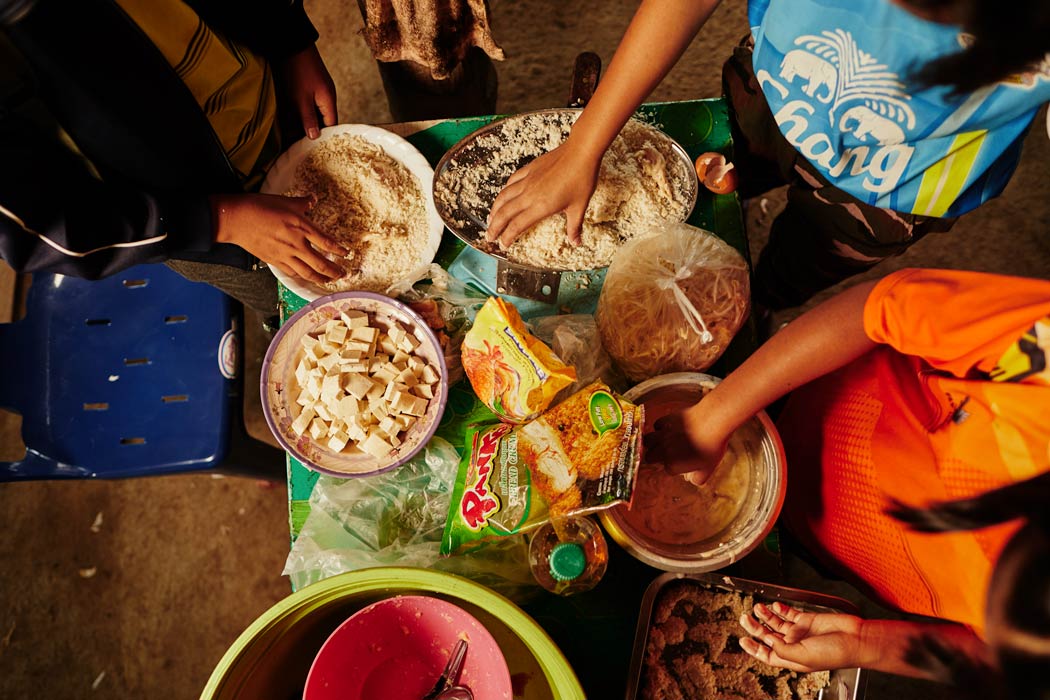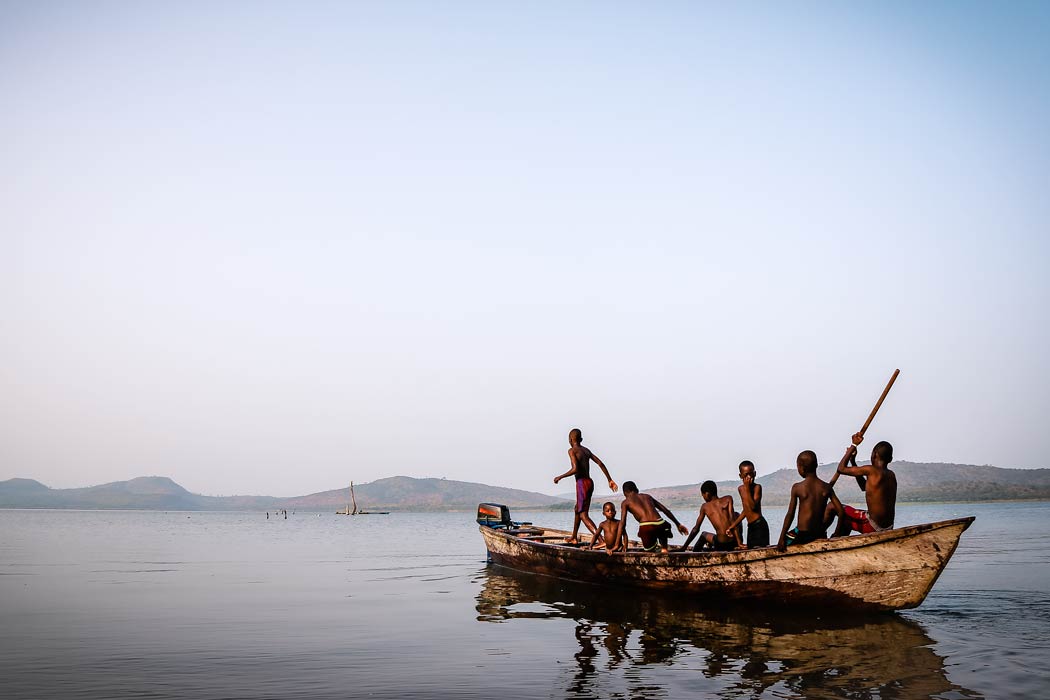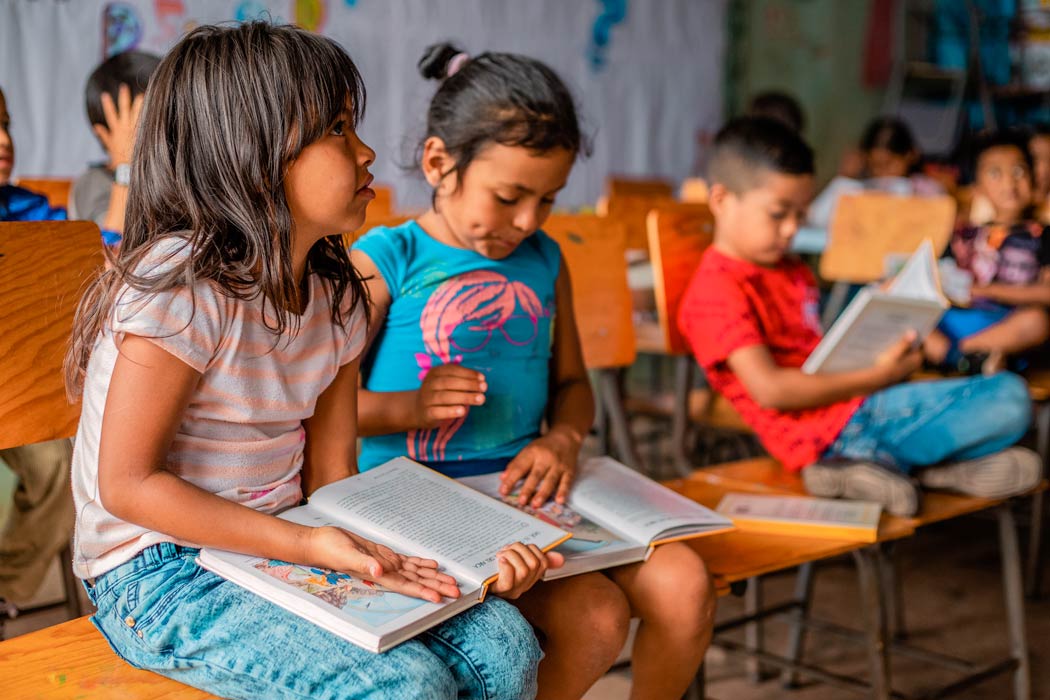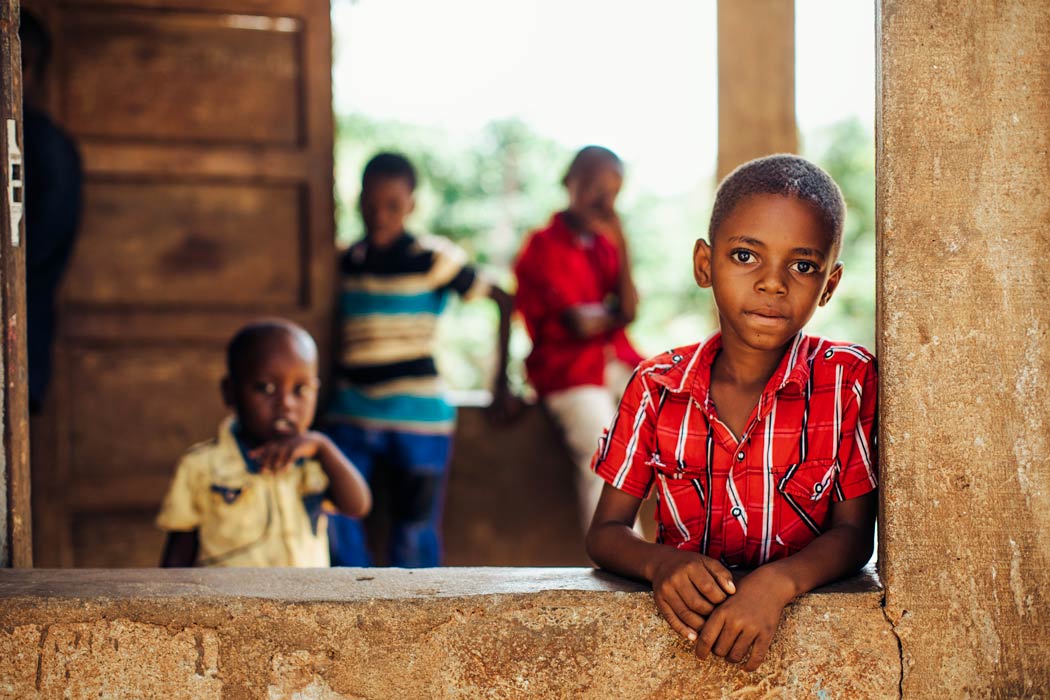Millions of children have escaped poverty in the past few decades, but the COVID-19 pandemic threatens to undo much of that progress. So what are the risks that children face—and how can we respond?
25 Jun, 2020
Slowly but surely, over many decades, millions more children have benefitted from better health and nutrition, access to school and better social and emotional health as poverty rates have fallen.
But COVID-19 has choked the global economy in 2020, shutting down workplaces and forcing people to stay home to limit the virus's spread.
For the first time in years, poverty rates are rising and more families are caught up in a tightening vice of illness and economic collapse.
So what does that mean for children—and what are the risks they face?
1. Child hunger and malnutrition

The pandemic has disrupted food supplies and distribution chains around the world.
While the middle class can afford to stock up on essentials, the poorest families simply can't—no work usually means no food. That stark reality has led millions of day labourers to defy distancing orders and continue to work, simply to put food on the table.
But as the economic fallout continues and work dries up, more children and their families will not have enough to eat each day.
"The people that are suffering the most are the poorest of the poor, and the children who are now at home without food," says Richmond Wandera—a Compassion graduate and pastor in Uganda.
Around 135 million people already face acute hunger, according to the World Food Program.
Now, a new study shows that lockdowns and the economic recession caused by COVID-19 may almost double the number of people who could go hungry.
That means a total of 265 million people pushed to the brink of starvation by the end of the year—and the most vulnerable are children.
As the continent with the largest amount of malnutrition in the world, a food security crisis is the last thing Africa needs.
"COVID-19 is unfolding in Africa against a backdrop of worrying levels of hunger and undernourishment, which could worsen as the virus threatens livelihoods and household economies," says Dr Matshidio Moeti, World Health Organisation's Regional Director for Africa.
With falling incomes, less agricultural activity and a global economic downturn, many vulnerable children and their families will have no choice but to go hungry.
2. Child mortality
Better nutrition, education, access to healthcare and birthing support for mums have seen huge gains in helping millions of vulnerable babies survive through their early years.
Even so, more than 2.5 million babies died in 2017 from preventable causes, according to the World Health Organisation.
Now, researchers based at the Johns Hopkins Bloomberg School of Public Health have modelled, in a yet-to-be-reviewed report, what may happen if COVID-19 causes similar disruptions to those in West Africa during the Ebola outbreak of 2014.
They found that almost 1.2 million children and 57,000 mothers could die over just the next six months—a 45 per cent increase over existing child mortality levels.
These numbers are tentative but they show the fragility of life when you are born—or giving birth—as already stretched medical systems begin to buckle under the pressure of a pandemic.
3. Child labour

Since the year 2000, the number of child labourers has decreased by more than 94 million—down to around 152 million in 2017.
Yet as families grow increasingly desperate to bring in income, it's likely that more children will be forced into work, according to a new report from the International Labour Organisation and UNICEF.
"As poverty rises, schools close and the availability of social services decreases, more children are pushed into the workforce," says Henrietta Fore, executive director of UNICEF.
The report rings the alarm on the risk that:
- More children could be forced into exploitative and hazardous jobs.
- Those already working may do so for longer hours or under worsening conditions.
- Gender inequalities may grow, with girls expected to perform additional household chores and agricultural work.
4. Education

Education is critically important to a child's development.
Roughly two in three learners worldwide have been affected by the COVID-19 pandemic, with schools shut down and students told to stay at home.
Long-term impacts on education are hard to predict, but it seems that students with online learning options and plenty of support will fare better than those without.
Children who are worst-affected may suffer delays in learning and gaps in knowledge that take years to catch up. For some, this may mean dropping out of school altogether.
"If children are orphaned or become heads of the household, they may have to drop out of school to provide for themselves and their siblings," says Sidney Muisyo, Senior Vice President of Global Program at Compassion International.
But UNESCO points out a host of other risks of being forced out of the classroom, too, including:
- Increased vulnerability to violence and exploitation
- Social isolation
- Poor nutrition
How can we respond to help protect children?

The COVID-19 pandemic threatens to undo much of the progress that underprivileged children have made in recent decades—but that's not the end of the story.
Because thousands of local churches across the globe are providing for children's most urgent needs. Monitoring their wellbeing. Providing support, encouragement and prayer. Investing in their lives, now and after the pandemic has passed.
With your help, they can continue to protect children from the worst effects of the virus—and the host of additional threats it compounds and complicates. Together, we won't let COVID-19—or poverty—win.
Give today to help protect vulnerable children from the devastation of COVID-19.
Words by Richard Miller
Photos by Ben Adams, Helen Manson and Daron Short
Additional Sources
ILO, UNICEF (2020) COVID-19 and Child Labour: A time of crisis, a time to act
UN (2020) Policy Brief: The impact of COVID-19 on children
WHO, UNICEF (2018) Survive and Thrive: Transforming care for every small and sick newborn
World Food Program (2020) Global Report on Food Crises

